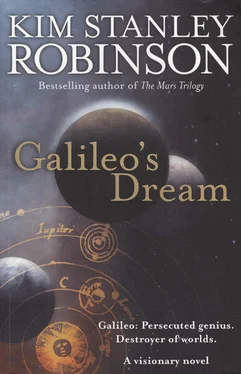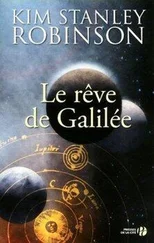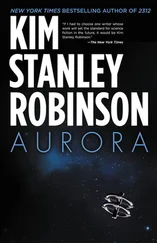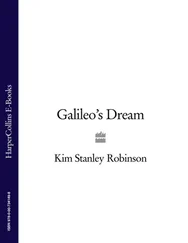—GIORDANO BRUNO,
The Expulsion of the Triumphant Beast
He would like it if he knew.
Maybe this is as a good a way to put it as any. Just do what the maestro would like. Viviani, who believed that the soul of the dying Michelangelo had flown into baby Galileo at the moment of his birth, the two having happened at nearly the same hour, followed that principle all his life. He died a few years after our carnival night, and he was buried next to Galileo, as he had requested, without anyone noticing that the scientist’s tomb had been rebricked. By the time his nephew’s heirs finally succeeded in getting the approval of a pope—Clement XII, a Florentine—for the construction of the elaborate tomb that Viviani had advocated, it was 1737. When that tomb’s construction was finished, they moved the coffins, and were surprised to find three together in Galileo’s little tomb. It was pretty obvious then what had happened, and all three of the coffins were placed in the new monument, right across the nave from Michelangelo’s. Art and Science, buried side by side! With a student and a poor Clare included, wisping through the world unnoticed. From Galileo’s body they took a vertebra, a tooth, and three detached fingers, for use as relics. The remainer of the three bodies are still there: Galileo, Maria Celeste, and Vincenzio Viviani.
The rest of us moved on: forward, backward, sideways. I went to Holland, then England, then France, where I have been most of the time since. I’ve tended the entangler, and kept in touch with La Piera and Buonamici and Sestilia. The wars have been almost continuous. Huy-gens was a good man, Leibniz too. All in all we helped several people. All over Europe, Galileo’s ideas were taken up by the philosophers, and his methods by the scientists. Nevertheless very little scientific progress has been made, or progress of any kind, to be frank. And yet I notice no one is coming back in the entangler anymore. Sometimes Hera checks in, but she doesn’t tell me much, and it’s painful to report to her what I’ve seen. The suffering is if anything getting worse, as populations rebound from the Black Death but epidemics remain virulent and unchecked. And people keep killing each other.
Somehow in all this protraction of years, watching all the lives rush by, Galileo keeps coming back to me. If La Piera was right, and we are alive when people are thinking about us, then Galileo is definitely still alive, coming back in us as I suppose he keeps coming back to that poisoned cellar floor: unkillable, boastful, sarcastic, self-regarding—all the obvious flaws, sure.
The good that he fought for is not so easy to express. But put it this way: he believed in reality. He believed in paying attention to it, and in learning what he could of it, and then saying what he had learned, even insisting on it. Then in trying to apply that knowledge to make things better, if he could. Put it this way: he believed in science.
But listen to me, because I saw it myself: science began as a Poor Clare. Science was broke and so it got bought. Science was scared and so did what it was told. It designed the gun and gave the gun to power, and power then held the gun to science’s head and told it to make some more. How smart was that? Now science is in the position of having to invent a secret disabler of guns, and then start the whole process over. It’s not clear it can work. Because all scientists are Galileos, poor, scared, gun to our head. Power lies elsewhere. If we can shift that power … that’s the if. If we can shift history into a new channel, and avoid the nightmare centuries. If we can keep the promise of science, a promise hard to keep.
In fact, so far, so bad. When I made my first analepsis, so long ago that I shudder to think of it, human history was little more than a long descent toward extinction, a matter of evermore devastating wars and genocides, famines and epidemics—growing immiseration for the bulk of humanity and the rest of life on Earth. When I taught young children history, and saw the look on their faces when they understood, I was ashamed.
So I left all that, and went with Ganymede. I joined his attempt to make a retrojection that would shove the nightmare a different way. If people would only understand earlier, we thought, that science is a religion, the most ethical religion, the most devoted and worshipful religion … Clearly I was wrong even to try. It isn’t really possible. The paradoxes and entangled potentialities are the least of the problems. Worse by far is the enormous inertia of human weakness, greed, fear—all the sheer bloody mass of us. It’s been a nightmare. I joined the nightmare, I helped to dream it. We went back and interfered with Archimedes, we taught him things that got him killed; I got him killed. I could have saved him if I’d been fast enough, but I wasn’t. I was too scared. I watched the soldier spear him, paralyzed by fear. So I went back again with Ganymede, thinking I could make up for that—then, when I saw Ganymede doing his best to get Galileo burned at the stake, I started trying to make up for that too, trying to undo it, to stop it. Even though everything that happens happens. All at cross purposes. So many mistakes, so much misery. And yet here I am still. Why do I stay? It’s not as if I’ve helped in any noticeable way. So far it seems I’ve mostly done harm. I stay for the sunlight, I suppose, for the wind and the rain and for Italy. But mostly I stay because I don’t know what else to do.
And in fact I’ve stayed too long. The revolution has overtaken everything; Lavoisier was just guillotined yesterday, and I’m in a cell of the Bastille waiting my turn, which I think comes tomorrow. Sitting on stone in the dark, hearing the voices outside, I recall the poem that Machiavelli wrote after he was released from the prison where they tortured him—the place that taught him the lessons about power he tried so hard to pass on to the rest of us:
What disturbed me most
Was that close to dawn while sleeping
I heard chanting: “per voi s’ora.”
For you we are praying. I hope so. La Piera has the entangler, which would otherwise have been taken from me. Whether she and Buonamici and Sestilia will be able to meet me outside with it and help me out, I can’t be sure. This may be it. I find it hard to believe, which no doubt explains my stoic lack of fear. If it happens, it happens. I’m tired of the tumbrel days. And if this turns out to be the end, in these last hours I’ll be thinking hard. Imagination creates events, and by dawn I intend to have lived ten thousand years. Then my part of the tapestry will loop back in, the threads spreading out through the rest of the pattern.
And I’ll be done with this story, which I tried so hard to stay out of. Some of it I saw, some of it Hera told me, some of it I read in Galileo’s letters to Maria Celeste, some of it I made up—that’s fine, that’s the way it always is—some of it you made up too. Reality is always partly a creation of the observing consciousness. So I’ve said what I like; and I knew him well enough to think I got it mostly right. I know he was like us, always looking out for himself; and unlike us, in that he acted, while we often lack the courage to act. I wrote this for Hera, but no matter what time you are in when you read this, I’m sure that the history you tell yourself is still a tale of mangled potentiality, of unnecessary misery. That’s just the way it is. In all times people are greatly lacking in courage.
But sometimes they aren’t. Sometimes they keep trying. This too is history. We are all history—we’re the hopes of people in the past, and the past of some future people—known to those people, judged by them, changed by them as they use us. So the story keeps changing, all of it. This too I’ve seen, and so I persist. I hope without hope. At some point the inclined plane can bottom out and the ball begin to rise. That’s what science is trying to do. So far it hasn’t worked, the story has been ugly, stupid, shameful, sure; but that can change. It can always change. Because understand: once I saw Galileo burned at the stake; then I saw him squeak his way clear. You have to imagine how that feels. It makes you have to try.
Читать дальше
Конец ознакомительного отрывка
Купить книгу












